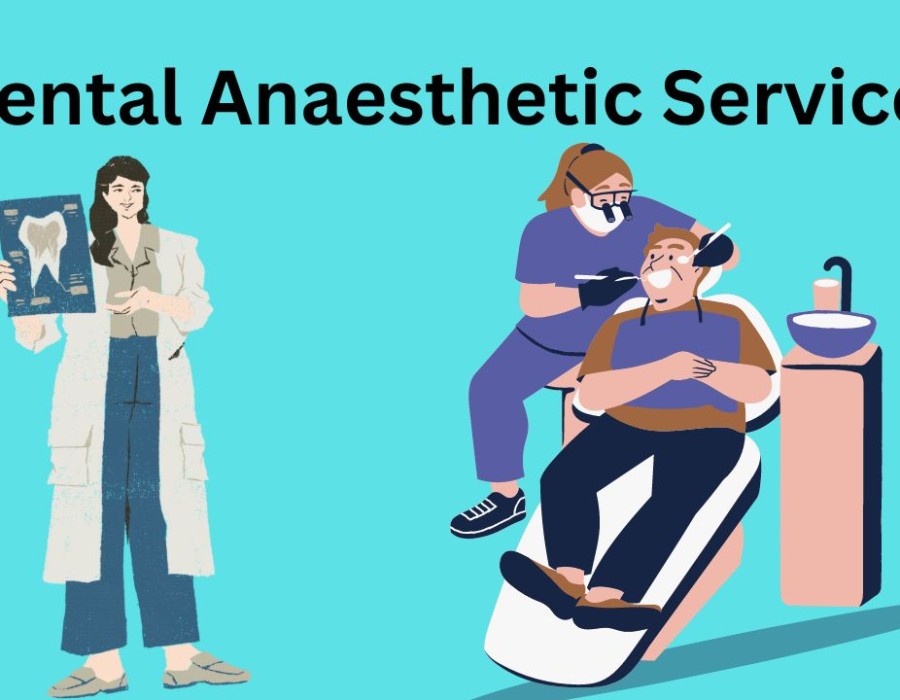Dental pain can be incredibly uncomfortable and disruptive to your daily life. Whether it's a Mobile anaesthesia solution dull ache, sharp pain, or throbbing sensation, the underlying causes can vary from cavities to gum disease or tooth sensitivity. If you're experiencing dental discomfort, it’s important to find ways to alleviate the pain until you can get to a dentist. In this article, we'll explore some effective home remedies and professional treatments to help reduce dental pain.
1. Use Over-the-Counter Pain Relievers
One of the quickest ways to get relief from dental pain is to take over-the-counter (OTC) pain relievers. Medications such as ibuprofen, aspirin, or acetaminophen can help reduce inflammation and block pain signals. Always follow the recommended dosage and consult with your doctor if you have any health conditions that may affect medication use.
2. Apply a Cold Compress
A cold compress can be a simple yet effective way to reduce swelling and numb the pain in your mouth. Apply a cold pack to the affected area on your face for 15-20 minutes. Repeat as necessary, but be sure not to apply ice directly to the skin, as this can cause damage.
3. Rinse with Salt Water
A salt water rinse is a natural and easy solution to reduce dental pain. It helps cleanse the mouth, reduces bacteria, and promotes healing. Mix half a teaspoon of salt into a glass of warm water, and swish it around your mouth for about 30 seconds. Repeat several times a day to keep inflammation down and soothe irritated gums.
4. Use Clove Oil
Clove oil is a traditional remedy for dental pain due to its natural anesthetic and anti-inflammatory properties. To use clove oil, apply a small amount to a cotton ball and dab it onto the affected tooth or gum area. You can also dilute it with a carrier oil like olive oil if you find the taste too strong.
5. Try Hydrogen Peroxide Rinse
If you suspect an infection or gum irritation is causing your pain, a hydrogen peroxide rinse might help. Mix equal parts of 3% hydrogen peroxide with water and swish it around in your mouth, but do not swallow. This rinse can reduce bacteria and promote healing in inflamed areas.
6. Elevate Your Head While Sleeping
If your dental pain worsens at night, try elevating your head with an extra pillow. This can prevent blood from rushing to the painful area, reducing pressure and discomfort while you sleep.
7. Avoid Trigger Foods and Beverages
Certain foods and drinks can exacerbate dental pain, especially if you're dealing with tooth sensitivity or cavities. Avoid very hot or cold beverages, sugary snacks, and acidic foods like citrus or soda. Instead, stick to soft foods that are easy to chew and won’t irritate your teeth or gums.
8. Use an Oral Gel or Numbing Agent
Over-the-counter oral gels that contain benzocaine can offer temporary pain relief. These numbing agents are applied directly to the painful area, providing quick relief by desensitizing the tissue around the tooth or gum.
9. Maintain Good Oral Hygiene
While you may feel tempted to avoid brushing if your teeth or gums are sore, maintaining good oral hygiene is critical. Gently brushing and flossing will help remove any food particles or bacteria that could be contributing to the pain. Use a soft-bristled toothbrush and mild toothpaste to avoid irritating sensitive areas.
10. When to See a Dentist
While these home remedies can help manage dental pain temporarily, they are not a substitute for professional care. Dental pain can be a sign of underlying issues such as tooth decay, gum disease, or an infection that requires treatment. If the pain persists for more than a couple of days or worsens, it's important to schedule an appointment with your dentist for a thorough evaluation and proper treatment.
Conclusion
Dealing with dental pain can be stressful, but there are several ways to manage and reduce discomfort until you can see a dentist. Using OTC pain relievers, home remedies like salt water rinses and clove oil, and practicing good oral hygiene can offer relief. However, if the pain is severe or doesn’t improve, it’s essential to seek professional dental care to address the root cause and prevent further complications.






Comments